Archaeology
-
 Archaeology
ArchaeologyTo find answers about the 1921 race massacre, Tulsa digs up its painful past
A century ago, hundreds of people died in a horrific eruption of racial violence in Tulsa. A team of researchers may have found a mass grave from the event.
-
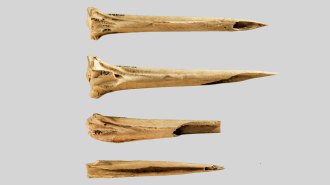 Archaeology
ArchaeologyThe oldest known tattoo tools were found at an ancient Tennessee site
Sharpened turkey leg bones may have served as tattoo needles between 5,520 and 3,620 years ago, at least a millennium earlier than previously thought.
By Bruce Bower -
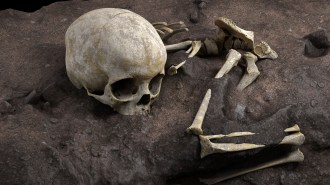 Anthropology
AnthropologyA child’s 78,000-year-old grave marks Africa’s oldest known human burial
Cave excavation of a youngster’s grave pushes back the date of the first human burial identified in the continent by at least a few thousand years.
By Bruce Bower -
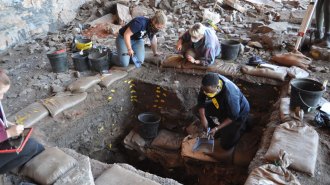 Archaeology
ArchaeologyStone Age culture bloomed inland, not just along Africa’s coasts
Homo sapiens living more than 600 kilometers from the coast around 105,000 years ago collected crystals that may have had ritual meaning.
By Bruce Bower -
 Archaeology
ArchaeologyA tour of ‘Four Lost Cities’ reveals modern ties to ancient people
In the book 'Four Lost Cities,' author Annalee Newitz uses cities of the past to show what might happen to cities in the future.
-
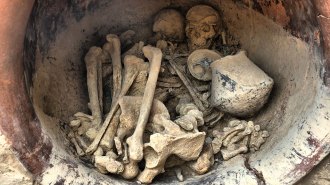 Anthropology
AnthropologyRiches in a Bronze Age grave suggest it holds a queen
Researchers have long assumed mostly men ran ancient Bronze Age societies, but the find points to a female ruler in Spain 3,700 years ago.
By Bruce Bower -
 Archaeology
ArchaeologyAn ancient dog fossil helps trace humans’ path into the Americas
Found in Alaska, the roughly 10,000-year-old bone bolsters the idea that early human settlers took a coastal rather than inland route.
-
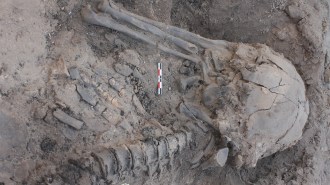 Anthropology
AnthropologyA body burned inside a hut 20,000 years ago signaled shifting views of death
Ancient hunter-gatherers burned a hut in which they had placed a dead woman, suggesting a change in how death was viewed.
By Bruce Bower -
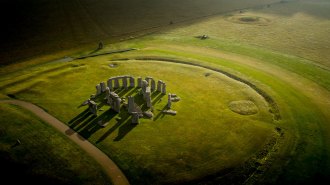 Archaeology
ArchaeologyStonehenge may have had roots in a Welsh stone circle
Ancient migrants to southern England brought the makings of the iconic monument with them, researchers suspect.
By Bruce Bower -
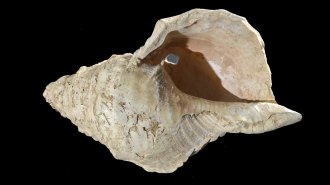 Archaeology
ArchaeologyHumans made a horn out of a conch shell about 18,000 years ago
Ancient find may have sounded off during rituals in a cave adorned with wall art.
By Bruce Bower -
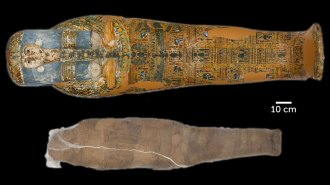 Archaeology
ArchaeologyAn ancient Egyptian mummy was wrapped in an unusual mud shell
Commoners in ancient Egypt may have used mud in place of expensive resin to imitate royal mummification techniques.
-
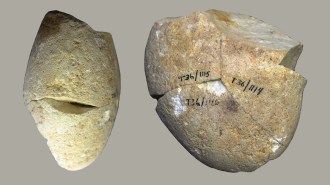 Archaeology
ArchaeologyThe oldest known abrading tool was used around 350,000 years ago
A flat-ended rock found in an Israeli cave marks an early technological shift by human ancestors to make stone tools for grinding rather than cutting.
By Bruce Bower